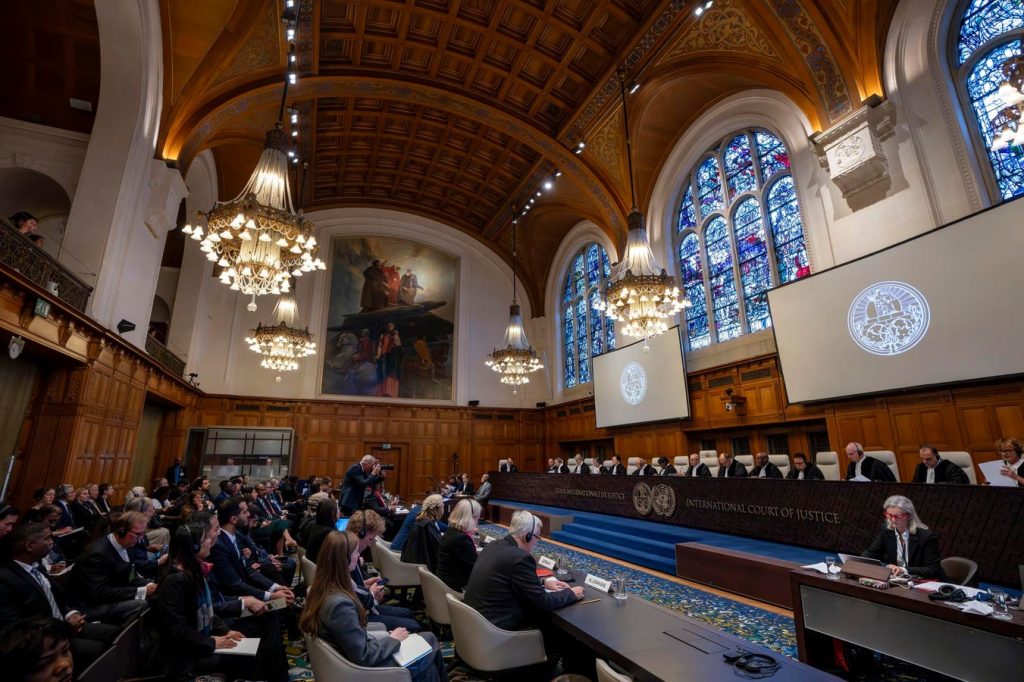A Landmark Case at the ICJ: Determining State Responsibility for Climate Change
The International Court of Justice (ICJ), the principal judicial organ of the United Nations, recently concluded oral hearings in a landmark advisory proceeding concerning the obligations of states in respect to climate change. This case, initiated by the Republic of Vanuatu and endorsed by the UN General Assembly, represents a watershed moment in the legal battle against climate change. The ICJ’s advisory opinion, while non-binding, is expected to have profound implications for future climate litigation and the development of international climate law. The central question at stake is whether, and to what extent, states bear legal responsibility for their contributions to climate change and the resulting harm inflicted on vulnerable nations and future generations.
The UN General Assembly, responding to a request from Vanuatu, posed two crucial questions to the ICJ. First, it sought clarification on the obligations of states under international law to protect the climate system from anthropogenic greenhouse gas emissions for the benefit of present and future generations. Secondly, it asked the Court to determine the legal consequences for states whose actions or omissions have caused significant harm to the climate system, particularly for small island developing states (SIDS) that are disproportionately vulnerable to the adverse effects of climate change. This latter question touches upon the sensitive issue of reparations and financial responsibility for climate-related damages.
Over the course of two weeks in early December, the ICJ heard oral statements from over 100 countries and organizations, each presenting their legal arguments and perspectives on the complex issues at hand. The diverse range of participants underscores the global significance of this case and the widespread recognition that climate change is a shared challenge requiring international cooperation. Vanuatu and the Melanesian Spearhead Group, representing some of the most vulnerable nations on the frontlines of climate change, opened the proceedings, setting the stage for a compelling legal debate. Transcripts of the daily hearings, along with written statements from participating nations, have been made publicly available on the ICJ’s website, ensuring transparency and accessibility for all stakeholders.
A key point of contention in the proceedings revolves around the interplay between existing international climate agreements, specifically the UN Framework Convention on Climate Change (UNFCCC) and the Paris Agreement, and other bodies of international law. Developed countries, including major emitters like the United States, Australia, and Germany, argued that the UNFCCC and the Paris Agreement, as specialized treaties dealing specifically with climate change, supersede any other international legal norms on the subject. This principle, known as lex specialis, suggests that no further legal obligations exist beyond those explicitly outlined in the climate treaties, thereby precluding claims for reparations or actions not already negotiated within those frameworks.
In contrast, developing countries, many of which face the most immediate and severe impacts of climate change, contend that the existing climate agreements are merely a starting point. They argue that the devastating effects of climate change constitute violations of fundamental human rights, as enshrined in international customary law and the Universal Declaration of Human Rights. This perspective supports the argument that countries historically responsible for high levels of greenhouse gas emissions bear a legal and moral obligation to provide financial assistance and reparations to vulnerable nations suffering from the consequences of climate change. The fundamental disagreement on the applicable legal frameworks highlights the deep divisions between developed and developing countries regarding responsibility and redress for climate-related harm.
Following the conclusion of the oral hearings, four judges posed written questions to the participants, delving deeper into specific legal arguments and seeking further clarification on complex issues. These questions, submitted by Judges Sarah Cleveland (USA), Dire Tladi (South Africa), Bogdan-Lucian Aurescu (Romania), and Hilary Charlesworth (Australia), covered a wide range of topics, including the obligations of oil-producing countries, the binding nature of the Paris Agreement, the existence of a right to a healthy environment in international law, and the impact of the Paris Agreement on existing international law concerning compensation for environmental damage. Participants were given the opportunity to respond to these questions in writing, with their responses subsequently published on the ICJ’s website.
The sixty-four responses received from a diverse group of states and organizations reflect the varied perspectives on the legal complexities of climate change. Participants included the African Union, several small island states, major industrialized nations, and international organizations like the International Union for Conservation of Nature. This broad participation further emphasizes the global significance of the case and the widespread interest in the ICJ’s forthcoming advisory opinion. The Court’s eventual opinion, while advisory and not legally binding on states, is anticipated to have a significant influence on future climate litigation, the interpretation of existing international climate law, and the negotiation of future climate agreements. It will also serve as a crucial reference point for policymakers, legal scholars, and civil society organizations engaged in the ongoing struggle to address the global challenge of climate change.











